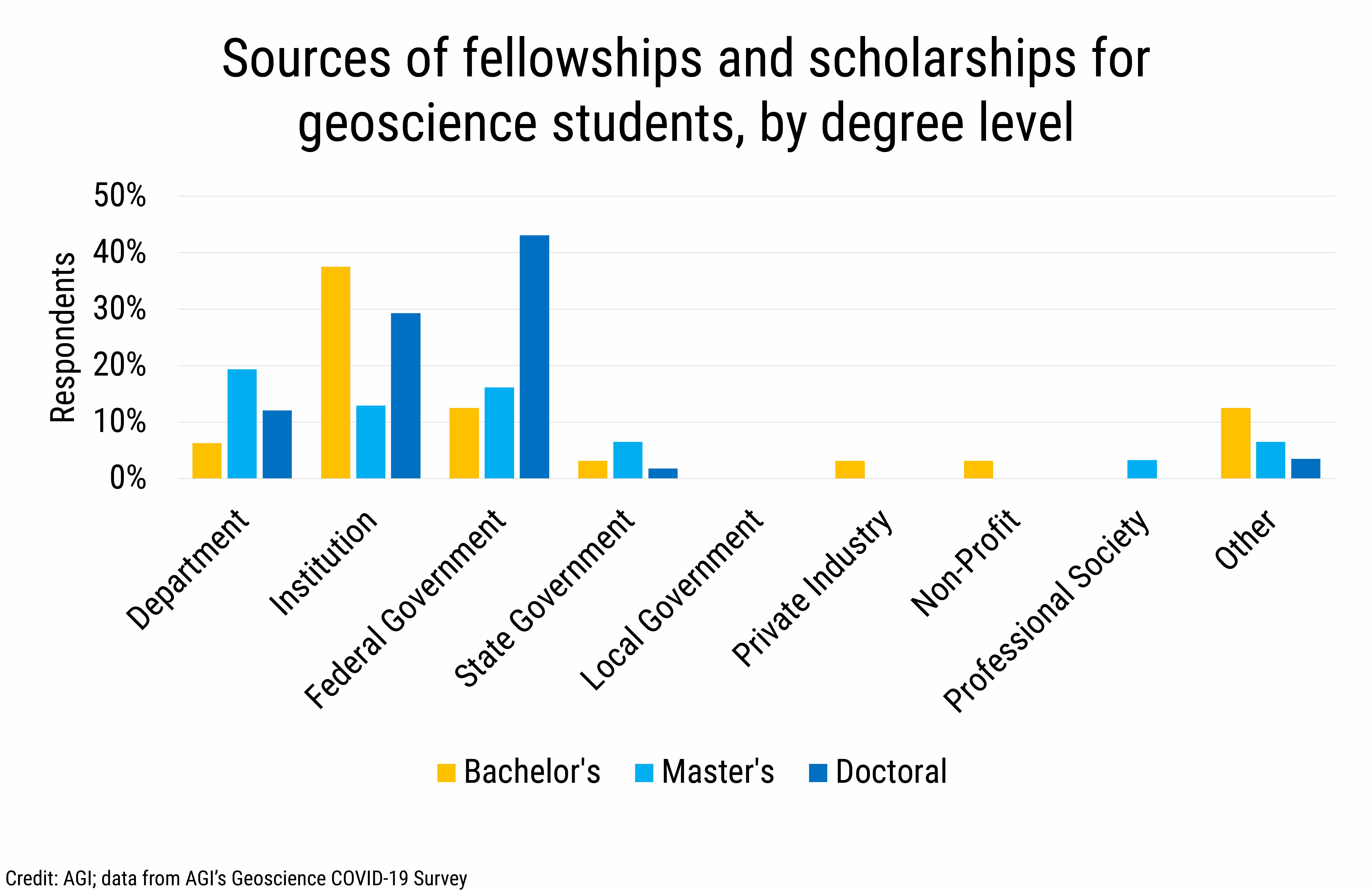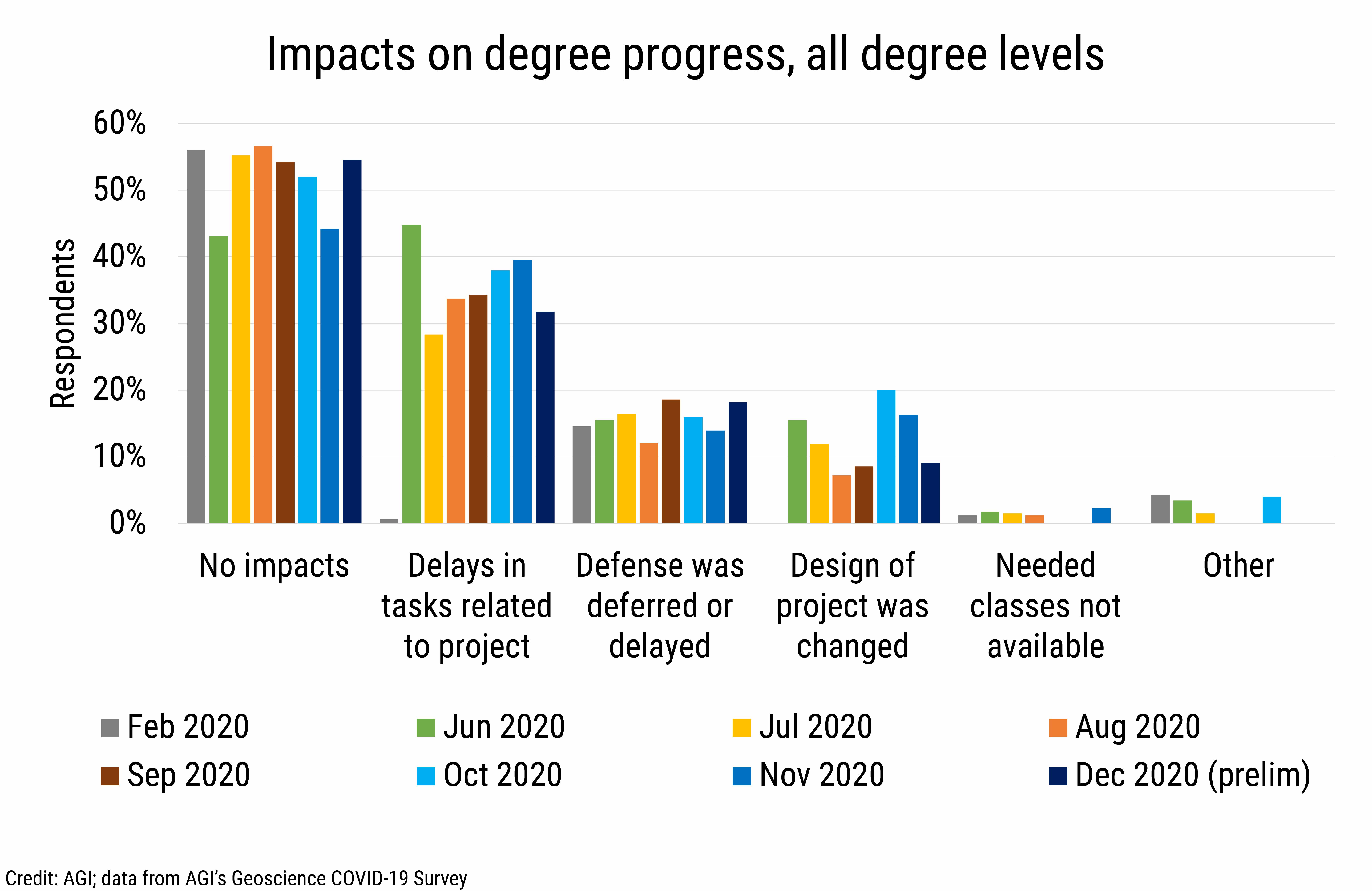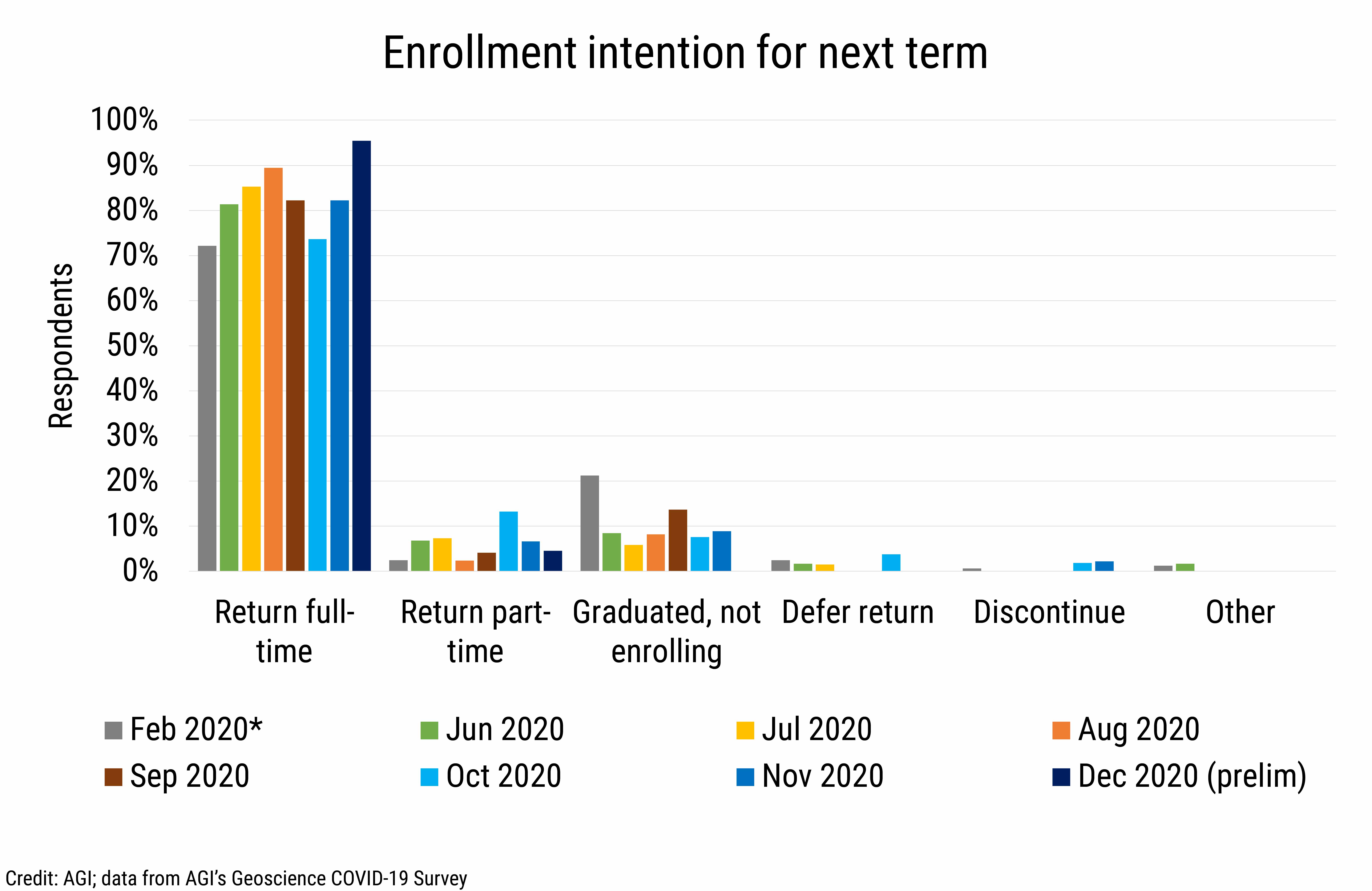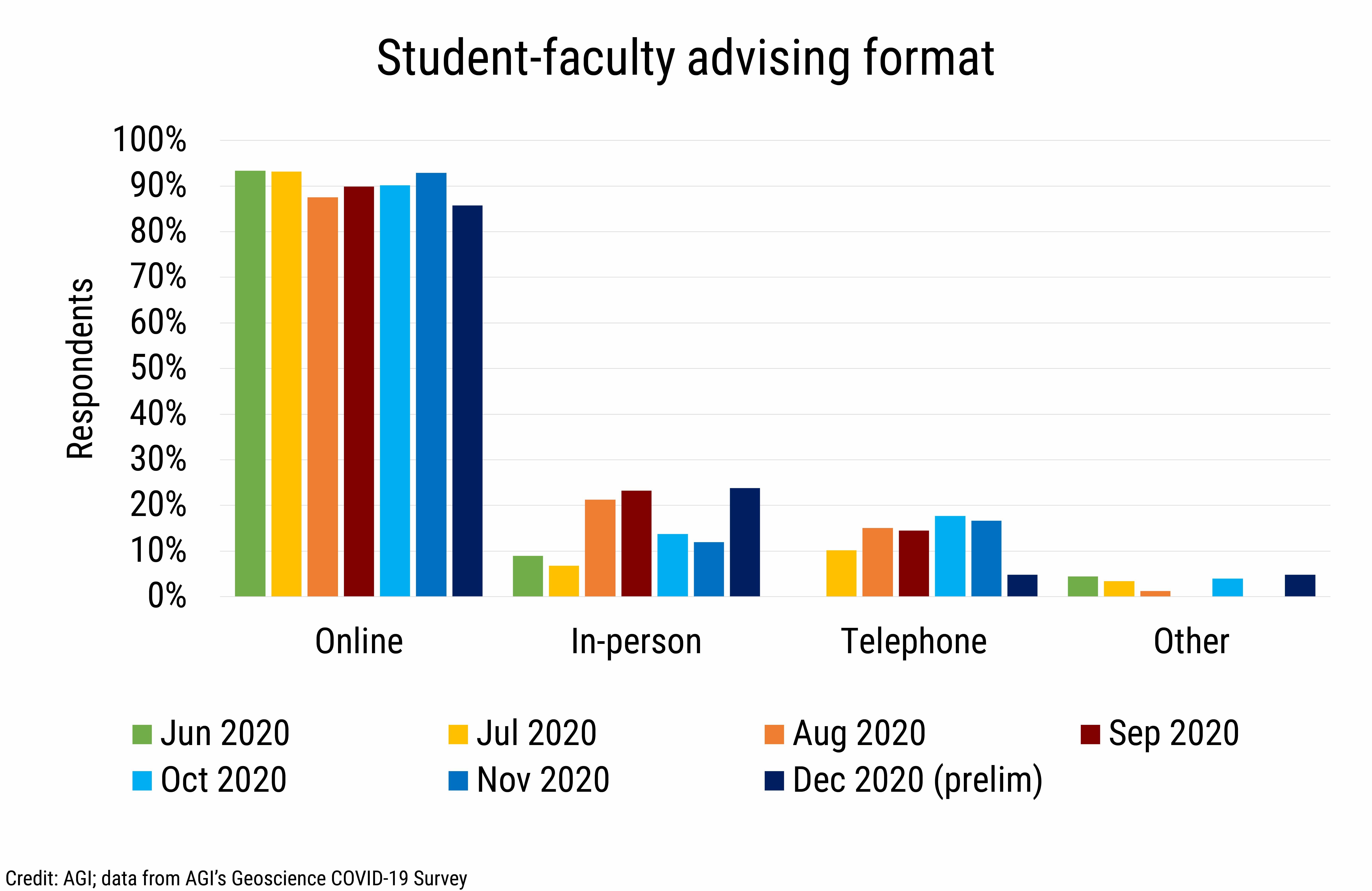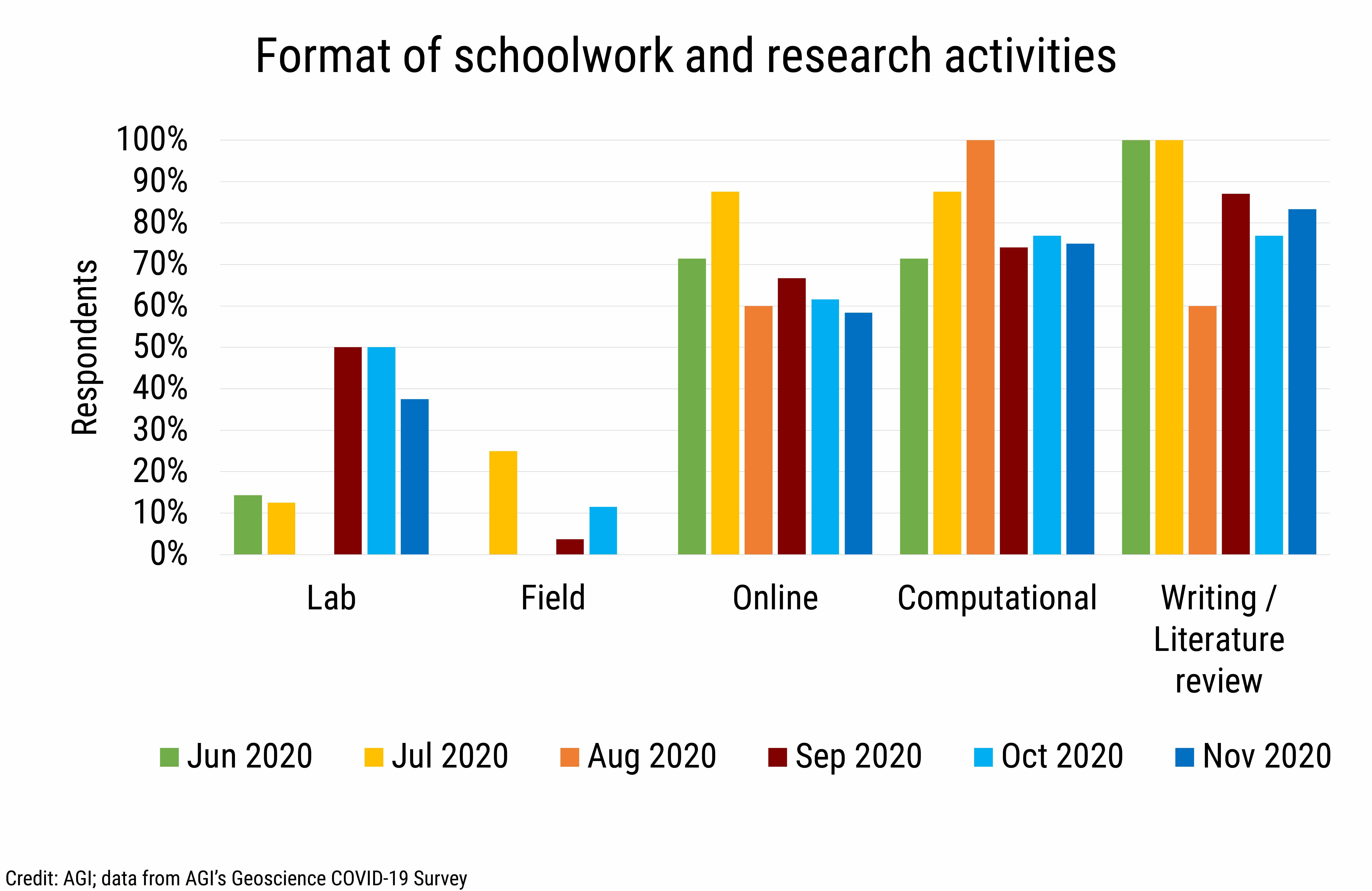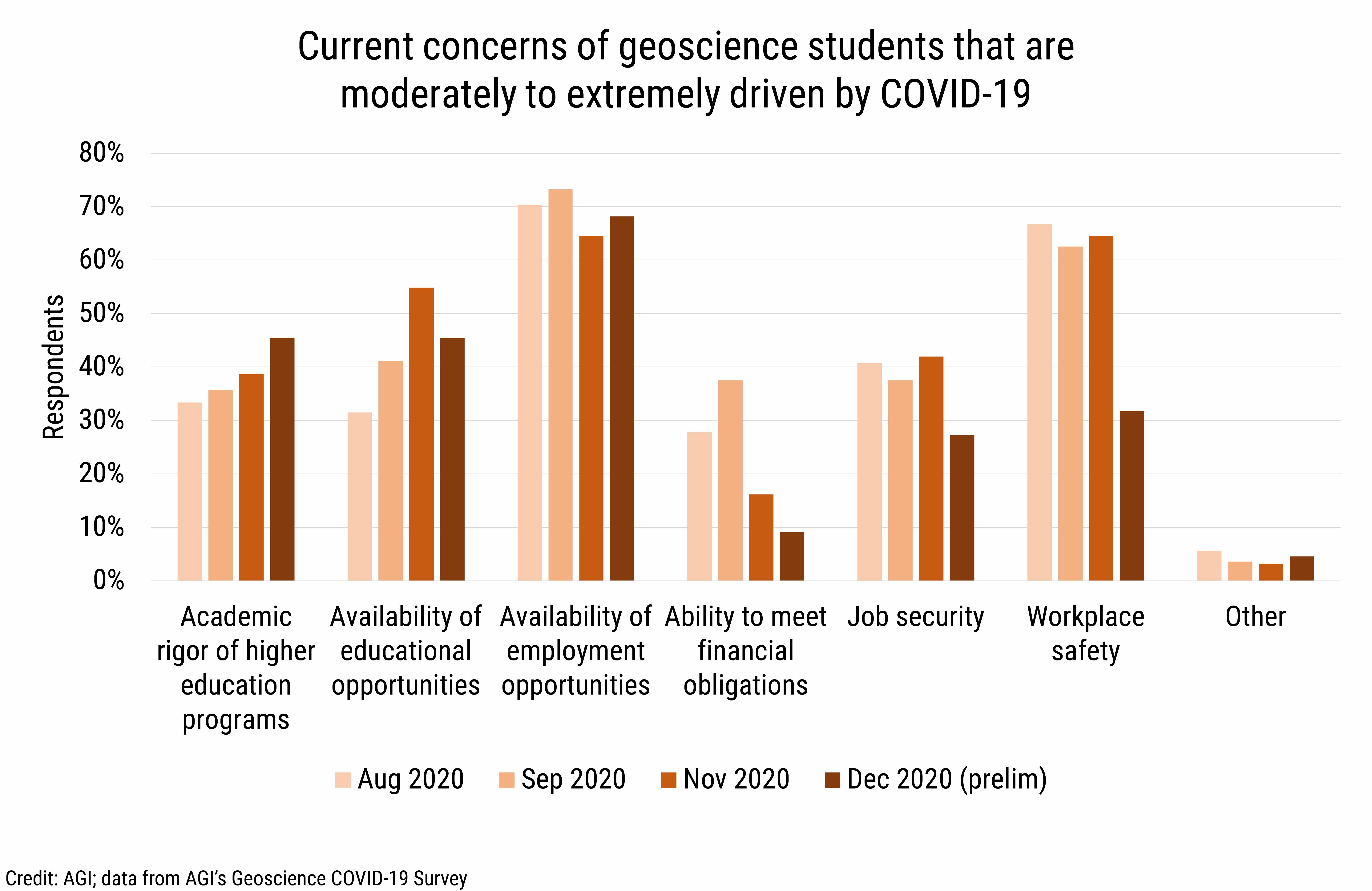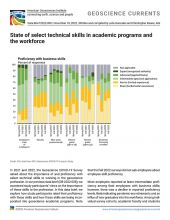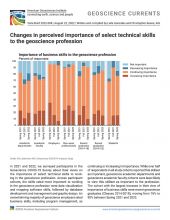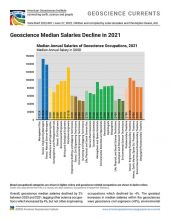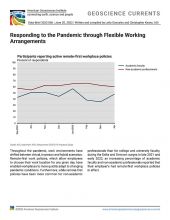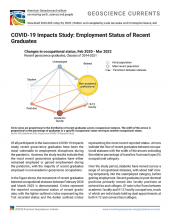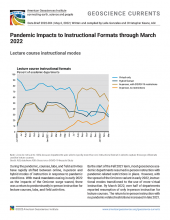In this data brief we examine the effects of the pandemic on geoscience students, including impacts to degree progress, students’ intent to continue in their degree programs, how student-faculty advising is being conducted, and impacts to research activities. Most students have reported no impacts to their degree progress and have also reported that they intend to continue full time in their degree programs. Student-faculty advising has primarily been conducted via online communication platforms, and student schoolwork and research activities have primarily included a mix of online research, computational activities, and writing and literature review. Additionally, since August, students’ top concerns that have been moderately to extremely driven by COVID-19 have centered on the availability of employment opportunities.
Fellowship and scholarship support
Just over one-third of geoscience bachelor’s students reported being supported by a fellowship or scholarship, and over half of master’s and doctorate students reported the same (52% and 60% respectively). Fellowships and scholarships were primarily funded by the federal government, the student’s institution or the student’s academic department.
Impacts on degree progress
Since July, most students reported no impacts to their degree progress. The most commonly reported impacts have been delays in tasks related to their thesis, dissertation, or capstone project. In addition, approximately one-third of students reported delays or deferment of their defense, while some students noted that they had to change the design of their thesis, dissertation, or capstone project.
Intent to continue degree program
Despite the pandemic, students overwhelmingly reported that they intended to continue with their studies. While most students intended to return full-time, a small percentage of students indicated they were returning part-time. Some students mentioned the reason for returning part-time was to complete their final defense. Less than 5% of students indicated that they were planning to defer their return to school or discontinue their studies.
*Note in February 2020, survey responses for enrollment intention pertain to the Fall 2020 term.
Student-faculty advising
The majority of student-faculty advising was done via online communication platforms. Less than a quarter of students reported meeting with their adviser in-person, via the telephone, or via email. Relative to February, 52% of students reported that the frequency of meeting with their adviser was the same, 21% of students reported meeting more frequently with their adviser, and 27% of students reported meeting less frequently with their adviser.
Co-curricular and professional development activities
Students took part in a variety of co-curricular and professional development activities this year, with most students reporting being active with departmental committees, campus clubs, or student government (66%), attending technical, policy or career-related webinars (59%), and attending workshops or conferences (57%). Webinar and online course topics included career and graduate school preparation, diversity, equity and inclusion in the geosciences, online teaching strategies, and geoscience topical themes such as natural hazards, water resources, and environmental justice.
Schoolwork and research activities
Most students reported that their schoolwork and research activities were comprised of a mix of online research, computational activities, and writing and literature review. Half of students reported lab activities in September and October, but this percentage dropped to 38% by November.
Most students (89%) reported that the focus and topics of their schoolwork and research had not changed due to COVID-19. Those reporting a change mentioned that they had to make changes to their dissertation, thesis or final capstone project as a result of the pandemic. Just over one-fifth of students reported that the pandemic had provided them the opportunity to explore new areas of work and/or research, including new ways for collecting and analyzing data and new strategies for teaching and learning. In terms of supply shortages, more than half of students reported experiencing no supply shortages since March for items needed for their schoolwork or research, while 27% of students reported shortages in lab supplies and 23% of students reported shortages in personal protective equipment and cleaning supplies.
Students commented about the benefits and challenges of the way in which their schoolwork and research was being conducted during the pandemic. Benefits included being able to spend more time focused on research and writing, focused time in the lab over the summer, increased access to meetings, conferences, increased international collaboration, support from the student’s institution during the pandemic, less distractions and less time spent commuting.
Challenges mentioned by students included restrictions in facility access, especially lab space and equipment usage, which delayed research projects. Students also mentioned difficulties with finding time to meet with faculty, and drawbacks related to the lack of informal discussions, such as the ability to drop-by their faculty member’s office if they had questions or talk about their research while socializing with others. Some students also mentioned technology issues with virtual platforms, and others mentioned difficulties with using multiple platforms for collaborating with others.
Concerns
Since August, respondents shared what their top concerns were and how much they were driven by the pandemic. Since August, students’ top concerns that were moderately to extremely driven by COVID-19 centered on the availability of employment opportunities. In addition, an increasing percentage of students expressed concerns about the academic rigor of higher education programs and the availability of educational opportunities.
We will continue to provide current snapshots on the impacts of COVID-19 on the geoscience enterprise throughout the year. For more information, and to participate in the study, please visit: www.americangeosciences.org/workforce/covid19
Funding for this project is provided by the National Science Foundation (Award #2029570). The results and interpretation of the survey are the views of the American Geosciences Institute and not those of the National Science Foundation.


